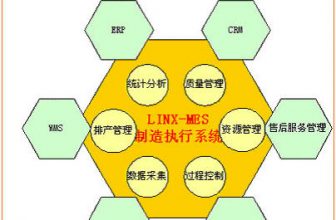
Helping security|Key points when quarantine agencies and customs apply RFID
[ad_1]
1. Overcoming the so-called standard barriers
Throughout the domestic discussions on RFID in the past two years, many people have fallen into a misunderstanding: Because the domestic standard has not yet been established, RFID applications cannot be vigorously promoted.
In fact, the so-called “standards issue” shouldn’t be a problem. As we all know, RFID is not only in China, but there is no unified standard in the world. Different applications should choose different tags and follow different coding standards.
The reason why Wal-Mart and the US Department of Defense dared to take the lead in planning RFID applications without standards is simple: they have the right to choose standards or set standards. Their requirements will become the actual standards of this supply chain, and they are the chain owners of the supply chain. Moreover, the technical specifications and coding standards finally selected by Wal-Mart and the US Department of Defense are not all consistent. Imagine that a Chinese supplier of Wal-Mart applies its electronic labels according to Wal-Mart’s standards (EPC) or China’s NPC standards?

At the same time, the standard also has multiple aspects and multiple levels. In terms of technical specifications, various labels are already very mature, and there is not much room for another set. In specific application areas, there are many gaps in various coding standards. It is often whoever realizes the application first, who has the greatest application influence, and has a wide coverage, who can have a greater right to speak when formulating standards. What’s more, in most closed-loop applications, data exchange and tag sharing are not involved, and there is no standard issue at all.
In the field of supervision of customs and inspection and quarantine, there is no need to start anew in the application of RFID in technical specifications. It is enough to choose to adopt mature foreign standards. In terms of coding, my country’s inspection and quarantine agency has the full right to formulate industry standards on its own, which is also a common practice applied in foreign industries. If the use of RFID is postponed due to standard issues, it can be said that it is because of choking, and eventually it will lose the right to speak in the standard.
Second, the label sharing problem
Many experts hope that the customs and inspection and quarantine agencies can synchronize and collaborate in the application of RFID. However, it is very difficult to realize electronic label sharing when the business process, information system and data exchange conditions of both parties are not available. In addition, the RFID applications of customs and inspection and quarantine agencies do not overlap much, and they can be carried out independently.
For example, in the process of customs transit and green channel logistics, the goods are completely under customs supervision, and inspection and quarantine does not need to obtain transit supervision data. In the agricultural product export supervision and traceability system, the data of the electronic label is quality data, which has little relationship with the customs and can be carried out independently. In situations where it is very necessary to share data, one party can take the lead and open the data to the other party.
Third, inspection and quarantine is the source of RFID applications
At present, with the promotion of the electronic supervision system for export products, inspection and quarantine work has penetrated into the manufacturing process of export production enterprises. Through the quality traceability of raw material batches, processing batches, and inspection batches, quality supervision has been effectively solved from the source. problem. The comprehensive promotion of “electronic supervision” has laid a solid foundation for RFID applications.
Use “electronic supervision information” as the data source and use RFID as the means to extend the transmission, covering the complete supply chain, and achieve the tracking, backtracking, business supervision and inspection of the entire process of origin inspection and quarantine, transportation, port inspection and customs clearance, distribution to sales Informatization is the development direction of RFID applications for inspection and quarantine.
Fourth, RFID applications must be combined with process changes

RFID is an advanced data collection technology, it needs an application system, this system may be a warehouse management system, an enterprise ERP system or an industry integrated business system. If there is not a certain level of application system information, it will be difficult to use RFID or even use it will not achieve the expected results.
At the same time, any change in technical means will bring or require changes in business processes. The use of RFID can reduce manual operations and improve efficiency to a large extent, which requires corresponding business processes to be changed to adapt to new technologies. This is the so-called BPR (Business Process Reengineering). In many industries, the use of RFID not only involves process changes, but may also require simultaneous adjustments to relevant regulations, especially in the area of administrative supervision.
5. Combination of regulatory requirements and corporate value
The direct purpose of using RFID is to improve the level and efficiency of supervision. However, in the implementation process, it will definitely bring objective effects such as improved customs clearance efficiency and strengthened management informationization for enterprises. In the implementation, how to provide as much information as possible to better serve the enterprise is a problem to be emphatically considered.
The author believes that with the first step of customs, inspection and quarantine RFID application, it will further promote the sustained, high-speed and healthy development of China’s foreign trade, create a better trade and investment environment, and will also influence and accelerate other domestic industries. The process of RFID application makes the era of RFID ubiquity come as soon as possible.
[ad_2]




